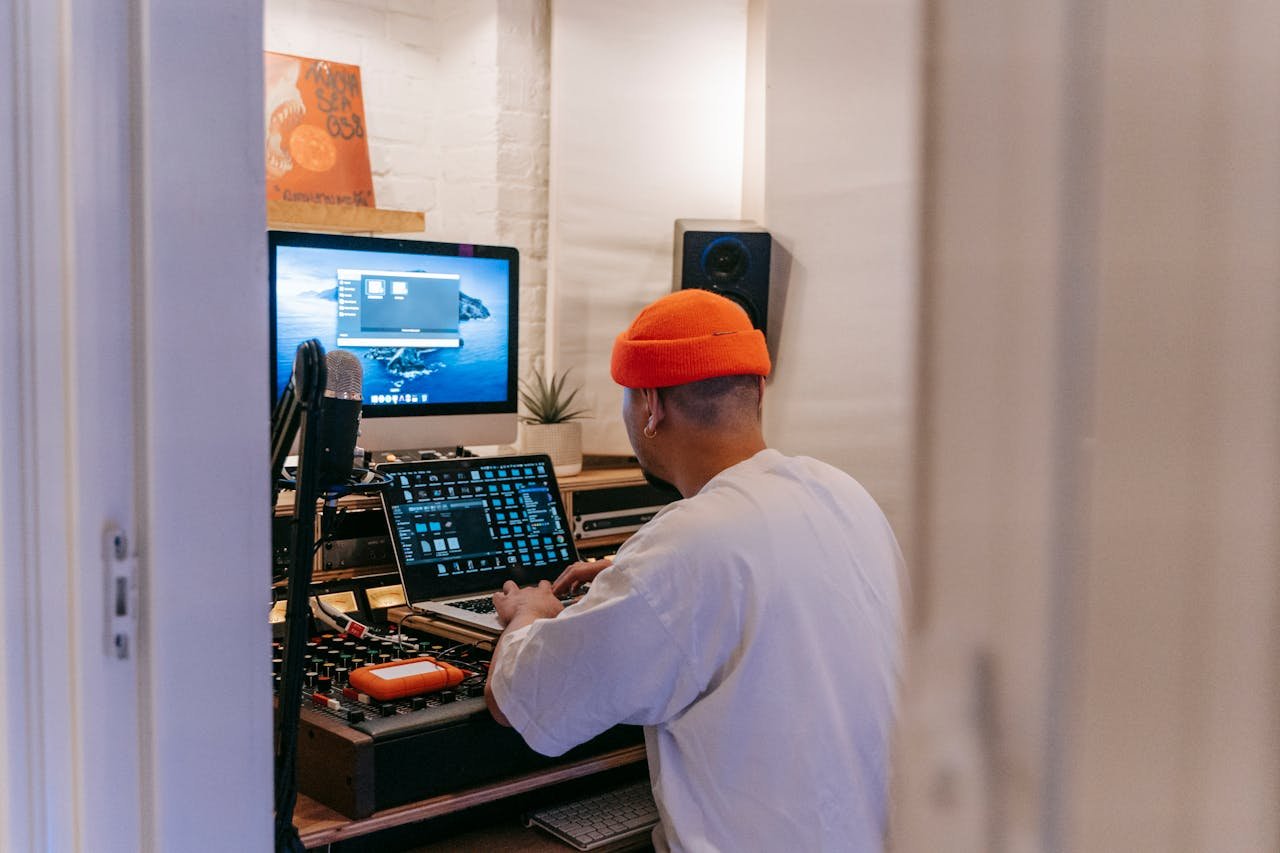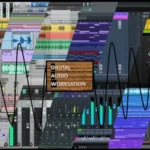In the dynamic world of music production, the role of a producer is pivotal in shaping the artistic vision and guiding the creative process, but what is a producer ? A music producer assists artists in bringing their musical ideas to fruition, overseeing every aspect from conception to the final polished product. Their responsibilities span a wide spectrum, including scheduling studio sessions, managing budgets, collaborating with engineers, and fostering an environment conducive to artistic expression.
Preproduction Role
In the preproduction phase, music producers play a pivotal role in shaping the artistic vision and laying the groundwork for a successful recording project. Their responsibilities during this stage include:
- Establishing the artistic direction and creative intent for the song or album, working closely with the artist to define their unique sound and identity.
- Reviewing rough demos or work tapes provided by the artist, offering constructive feedback, and suggesting improvements to the melody, chord progressions, arrangement, and overall structure.
- Collaborating with songwriters to ensure the essential elements, such as groove, rhythm, and feel, are effectively captured and aligned with the artist’s vision.
- Preparing detailed project planning documents, such as spreadsheets, to keep everyone involved on the same page and ensure a smooth recording process.
- Determining the technical setup, including selecting the appropriate microphones, channels, and equipment, to ensure optimal sound quality and capture the intended sonic characteristics.
During preproduction sessions, producers may also:
- Arrange compositions or suggest changes to instrumentation, effects, and lyrics to enhance the overall impact and commercial viability of the songs.
- Foster an environment that encourages creativity and spontaneity, allowing room for the “magic” to happen while maintaining a balance with thorough preparation.
- Provide guidance on song selection, arrangement, and production techniques, offering valuable advice and mentorship to help the artist navigate the music industry.
By dedicating time and effort to the preproduction phase, music producers ensure that the artist’s vision is clearly communicated and translated into a polished final product that meets professional standards. Their expertise and attention to detail during this crucial stage lay the foundation for a successful recording and production process.
Studio Guidance
In the studio environment, music producers play a crucial role in guiding and supporting artists throughout the recording process. Their responsibilities extend beyond technical expertise, encompassing emotional intelligence and interpersonal skills that foster a collaborative and nurturing atmosphere.
- You should approach artists with empathy, recognizing the vulnerability inherent in the creative process. Expressing genuine appreciation and praise for their contributions can help build trust and confidence.
- The use of emotive language can assist artists in connecting with the emotional experience of the music. Remain calm and positive on the talkback, even in stressful situations, to create a supportive and encouraging environment.
- Active listening is key. Encourage artists to share their thoughts and feelings about their performances, and be receptive to their insights and perspectives. This open communication can lead to a deeper understanding and more authentic interpretations.
By cultivating a safe and supportive studio atmosphere, you can help artists overcome self-doubt, tap into their creative potential, and deliver performances that truly resonate with their artistic vision. Your guidance and emotional intelligence are invaluable in shaping not only the technical aspects of the recording but also the emotional depth and authenticity of the final product.
Collaboration with Engineers
As a music producer, fostering a collaborative relationship with the recording and mixing engineers is crucial for achieving a cohesive and polished final product. Here’s how you can effectively collaborate with these technical experts:
- Establish Clear Communication: Maintain open lines of communication with the engineers throughout the recording process. Clearly articulate your artistic vision, desired sound, and any specific techniques or effects you’d like to incorporate. Encourage them to share their insights and suggestions, as their technical expertise can complement your creative direction.
- Respect Their Expertise: Recording and mixing engineers possess specialized knowledge and skills in their respective domains. Respect their expertise and be open to their recommendations regarding microphone placement, signal routing, and other technical aspects that can enhance the overall quality of the recordings.
- Foster a Collaborative Environment: Create an environment where everyone feels valued and encouraged to contribute their ideas. Encourage a free exchange of thoughts and suggestions, as this collaborative approach can lead to innovative solutions and a more cohesive final product.
- Provide Clear Direction: While respecting the engineers’ expertise, it’s essential to provide clear direction on the desired tone, vibe, and overall aesthetic you envision for the project. Share reference tracks or examples that capture the sound you’re aiming for, allowing the engineers to understand your creative goals better.
- Trust the Process: Recording and mixing are intricate processes that require patience and trust. Allow the engineers to work their magic while maintaining open communication. Provide feedback and make adjustments as needed, but also trust their judgment and experience in achieving the desired sonic outcome.
By fostering a collaborative and respectful relationship with the recording and mixing engineers, you can leverage their technical expertise to bring your artistic vision to life in the most compelling and impactful way possible.
Project Management
As a successful music project manager, you play a pivotal role in managing the various moving parts of a music project, including timelines, budgets, resources, and coordination with team members and stakeholders. To excel in this role, you need to possess five critical skills:
- Excellent Communication Skills: Clear and effective communication is essential for coordinating with artists, engineers, and other stakeholders, ensuring everyone is on the same page and working towards a common goal.
- Excellent Planning and Organizational Skills: You must be adept at creating detailed production schedules, managing budgets, and allocating resources efficiently to keep the project on track.
- Strong Leadership Skills: As the project manager, you need to provide direction, motivate the team, and make tough decisions when necessary to ensure the successful completion of the project.
- A Strong Understanding of Music Production: Having a deep knowledge of the music production process, from songwriting to mixing and mastering, will enable you to anticipate potential challenges and make informed decisions.
- Tech Savviness: Familiarity with project management software, digital audio workstations (DAWs), and other relevant technologies will streamline your workflow and enhance your ability to manage complex projects effectively.
Project management is the process of applying knowledge, skills, tools, and techniques to achieve specific goals within a given time and budget. In the highly competitive, dynamic, and unpredictable music industry, project management skills are crucial for ensuring the successful completion of projects.
Successful examples of project management in the music industry include:
- Beyoncé’s self-titled album release, which involved meticulous planning and coordination to maintain secrecy until the surprise release.
- Ed Sheeran’s Divide Tour, which required careful scheduling and logistics management to execute a massive global tour.
- Taylor Swift’s album releases during the COVID-19 pandemic, which showcased effective adaptation to changing circumstances and innovative promotion strategies.
Effective project management can give you a competitive edge in the music industry by showcasing your professionalism, organizational skills, and ability to deliver high-quality results on time and within budget. It can also help you build a positive reputation, opening doors to future opportunities.
As a producer, your project management responsibilities may include:
- Managing project budgets and handling contracts and negotiations
- Developing production timelines and tracking advertiser-supplied products and assets for integrations
- Keeping internal department workflow and tracking documents up to date
- Logging and archiving all content the company produces
- Editing music clips of integrated content and uploading them on the company’s website
- Working closely with network or studio scheduling teams to track delivery, air/publish dates, and times of upcoming integrated content
- Supporting the team on all integrations and proposals
Artistic Vision
As a music producer, one of your core responsibilities is to gather ideas and inspiration for projects and develop the overarching vision and direction for each one. This artistic vision serves as the guiding light, shaping every aspect of the creative process and ensuring a cohesive final product that resonates with the intended audience.
To cultivate this artistic vision, you must:
- Immerse Yourself in the Artist’s World: Engage in deep conversations with the artist, seeking to understand their personal experiences, influences, and the emotions they wish to convey through their music. This insight will inform your creative decisions and help you capture the essence of their artistic expression.
- Explore Diverse Inspirations: Draw inspiration from various sources, such as literature, films, visual arts, or personal experiences. This cross-pollination of ideas can spark unique creative directions and infuse the project with a distinct, multidimensional character.
- Stay Attuned to Cultural Trends: Maintain a keen awareness of current cultural trends, societal movements, and shifts in audience preferences. This knowledge will enable you to craft a vision that resonates with the zeitgeist and connects with listeners on a deeper level.
- Embrace Experimentation: Encourage an environment that fosters experimentation and risk-taking. Explore unconventional sounds, production techniques, or genre fusions to create a truly distinctive and boundary-pushing artistic vision.
- Collaborate and Refine: Engage in a collaborative dialogue with the artist, engineers, and other creative contributors. Remain open to their insights and suggestions, as this exchange of ideas can refine and elevate the artistic vision, ensuring it aligns with the collective creative intent.
Throughout the production process, your artistic vision should serve as a compass, guiding every decision and shaping the project’s sonic identity. By maintaining a clear and unwavering vision, you can craft a compelling musical experience that not only entertains but also leaves a lasting impact on the listener.
FAQs
1. What are the responsibilities of a music producer in the industry?
Music producers play a crucial role in overseeing and directing recording projects for artists. Their responsibilities can vary but typically include helping artists select songs and arrange them, coaching during studio sessions, hiring additional musicians, collaborating with recording engineers, and making decisions about the final mix of the tracks.
2. Can you explain the role and duties of a music producer?
A music producer acts as a creative director during the recording process, guiding the artist to fully realize the potential of their music or album. The producer’s duties cover a broad spectrum, encompassing both musical and non-musical aspects, and can vary depending on the individual producer’s style and approach.
3. What does a producer do specifically within a studio setting?
A studio producer primarily focuses on the technical aspects of music production. This includes overseeing the recording and production of songs or records, managing the sound production, and ensuring the project stays within budget.
4. What is the day-to-day experience like for a music producer?
The daily life of a music producer can vary greatly, but it often involves working closely with recording artists, particularly on capturing vocals for albums. Sessions may require recording multiple tracks in a single day, which necessitates a focused approach to each component of the track being produced.
This post may contain affiliate links. If you make a purchase through these links, we may earn a small commission at no additional cost to you.








